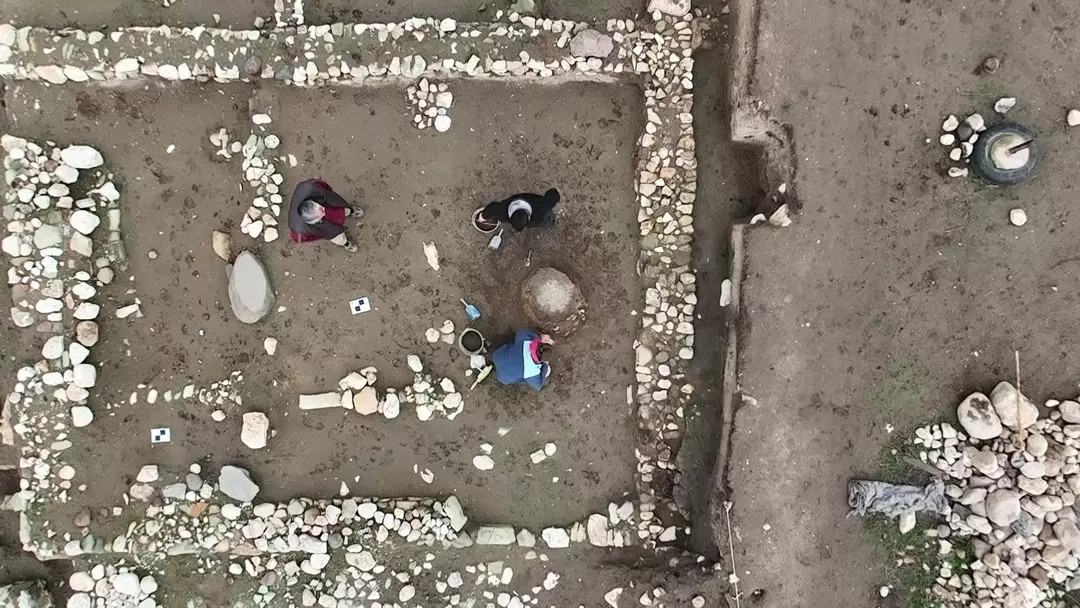A Rare Glimpse into Viking History
The 1,100-year-old sword was found in the River Cherwell
(Trevor Penny)
In a remarkable discovery that echoes with the echoes of ancient battles and tales of Norse warriors, a 1,100-year-old Viking sword has emerged from the depths of the River Cherwell in Oxfordshire. Unearthed by a magnet fisherman, the weapon, dating back to between AD 850 and 975, offers a rare glimpse into the tumultuous era of Viking raids and conquests.
The sword, pulled from the river's embrace last year, now rests in the care of the Oxford Museum, a tangible link to a bygone age of seafaring adventurers and fearsome warriors. Trevor Penny, the fortunate individual who stumbled upon this relic of the past, recounted the thrilling moment of discovery, a scene straight out of a Norse saga.
"I was on the side of the bridge and shouted to a friend on the other side of the bridge, 'What is this?'" Penny recalled. "He came running over shouting 'It looks like a sword!'" In that instant, history was brought to life, as the ancient blade emerged from its watery grave to bear witness to the passage of time.
The Viking Age, characterized by raids, exploration, and conquest, saw Norse warriors traverse the seas in search of riches and glory. From the infamous raid on Lindisfarne in 793 to the far-reaching expeditions across Europe, the Vikings left an indelible mark on history, their legacy woven into the fabric of British soil.
But the discovery of the Viking sword is not the only recent revelation to captivate the archaeological community. In Spain, archaeologists unearthed a 2,000-year-old lead projectile inscribed with the name of Julius Caesar—an artifact believed to have been used as propaganda during the general's civil war.
Trevor Penny discovered the 1,100-year-old Viking sword in the River Cherwell last year
(Trevor Penny)
Measuring 4.5 by 2 centimeters and weighing 71 grams, the lead projectile, known as a "glans inscripta," bears the inscription "IPSCA" on one side, likely referring to an unknown Spanish town, and "CAES" on the other, a nod to Caesar himself. This intriguing discovery hints at Indigenous Spanish support for the dictator during his tumultuous reign—a testament to the complexities of political allegiance and propaganda in ancient times.
As these remarkable artifacts continue to capture the imagination of historians and enthusiasts alike, they serve as reminders of the enduring power of the past to shape our understanding of the present. From Viking swords to Roman projectiles, each discovery offers a window into the rich tapestry of human history, inviting us to delve deeper into the mysteries of antiquity and uncover the untold stories of our ancestors.








